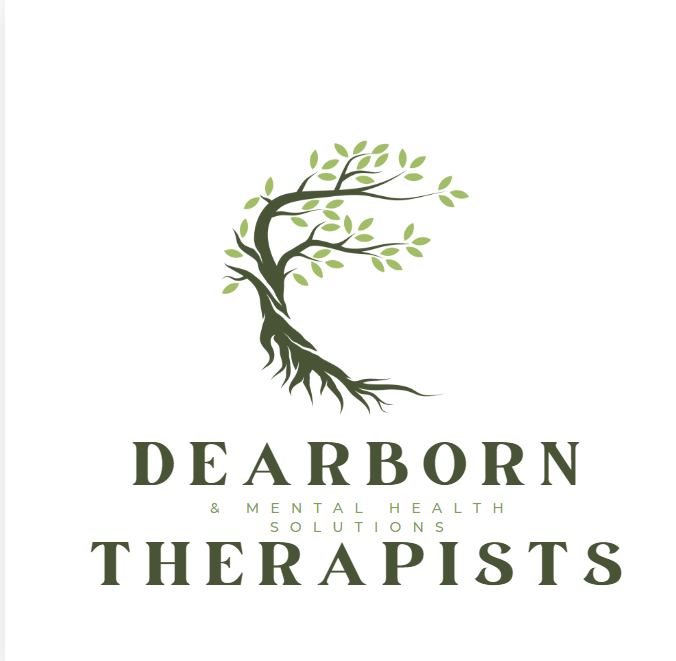The 7 Most Common Signs of Depression and When to Ask for Help
Understanding Depression: Recognize the Signs and Begin Your Healing Journey with Dearborn Therapists & Mental Health Solutions

Depression is a complex and often misunderstood mental health condition. It can affect anyone, regardless of age, background, or circumstances. For some, it begins subtly, with small shifts in mood or energy. For others, it arrives suddenly, overwhelming every aspect of life.
At Dearborn Therapists & Mental Health Solutions, we specialize in helping individuals recognize and manage depression with compassionate, evidence-based care. If you’ve been feeling persistently sad, fatigued, or disconnected, it’s important to know you’re not alone—and there is hope.
In this blog, we’ll break down the seven most common signs of depression, explore how they can manifest in daily life, and discuss when it’s time to seek professional help. Whether you’re reading this for yourself or someone you care about, understanding these symptoms is the first step toward healing.
What Is Depression?
Depression is more than occasional sadness or a reaction to a tough situation. It’s a mental health disorder that affects your thoughts, emotions, and physical health. Depression can make it difficult to carry out daily tasks, maintain relationships, or enjoy life’s simple pleasures.
The causes of depression vary and may include genetic predisposition, life events, trauma, or chemical imbalances in the brain. Regardless of its origins, depression is a treatable condition. With the right support, it’s possible to regain control of your mental health and find a path forward.
Let’s take a closer look at the signs of depression to help you better understand what to watch for.
The 7 Most Common Signs of Depression
1. Persistent Feelings of Sadness or Hopelessness
Feeling sad from time to time is a normal part of life, but depression takes this feeling to a whole new level. If you’ve been experiencing a deep, unshakable sadness or a sense of hopelessness that lingers for weeks or months, it could be a sign of depression.
This sadness often feels like a heavy cloud that weighs on you, making it hard to see anything positive. You might feel emotionally numb, disconnected from those around you, or like life has lost its meaning.
2. Loss of Interest or Pleasure in Activities
When depression takes hold, it’s common to lose interest in activities that once brought you joy. This can include hobbies, socializing with friends, or even spending time with family.
This symptom, known as anhedonia, makes life feel dull or empty. Things you used to look forward to might now feel like a chore or hold no appeal at all.
3. Changes in Appetite or Weight
Depression often affects eating habits, though it varies from person to person. You might notice:
- Decreased appetite: You’re eating less than usual, and food no longer tastes enjoyable, leading to unintentional weight loss.
- Increased appetite: You may find yourself overeating, often turning to comfort foods as a way to cope, resulting in weight gain.
Both patterns can signal depression, especially if they’re accompanied by other symptoms.
4. Sleep Disturbances
Sleep problems are a common struggle for people with depression. These disturbances can take several forms, such as:
- Insomnia: Difficulty falling asleep, staying asleep, or waking up too early.
- Hypersomnia: Sleeping excessively but still feeling exhausted.
Sleep disruptions not only exacerbate depression symptoms but also make it harder to manage daily responsibilities.
5. Fatigue or Low Energy
Chronic fatigue or a persistent lack of energy is another key sign of depression. This isn’t the kind of tiredness you can fix with a good night’s sleep—it’s a deep, unrelenting exhaustion that affects both your body and mind.
Even small tasks, like doing the dishes or running an errand, can feel overwhelming. Over time, this can contribute to feelings of guilt, frustration, or inadequacy.
6. Difficulty Concentrating or Making Decisions
Depression often impacts your ability to think clearly, stay focused, or make decisions. You might feel forgetful, struggle to follow through on tasks, or find it hard to stay organized.
This symptom, often referred to as “brain fog,” can be particularly frustrating, especially if it interferes with work, school, or personal responsibilities.
7. Thoughts of Death or Suicide
One of the most serious signs of depression is experiencing thoughts of death or suicide. These thoughts may range from fleeting ideas to persistent plans.
If you’re struggling with suicidal thoughts, it’s crucial to seek immediate help. Your life is valuable, and there are people who care about you and want to support you through this difficult time.
When to Seek Help for Depression
It’s not always easy to know when it’s time to reach out for help. Many people wait, hoping their symptoms will improve on their own. But untreated depression can worsen, making recovery more challenging.
Here are some signs it’s time to seek professional support:
- Your symptoms have persisted for two weeks or more.
- Depression is interfering with your daily life, work, or relationships.
- You’re experiencing physical symptoms like headaches, chronic pain, or digestive issues.
- You’ve had thoughts of self-harm or suicide.
- Self-care strategies like exercising, journaling, or talking to friends aren’t helping.
At Dearborn Therapists & Mental Health Solutions, we understand that asking for help can feel overwhelming. Our team is here to provide a safe, nonjudgmental space where you can explore your feelings and begin your healing journey.
How We Can Help at Dearborn Therapists & Mental Health Solutions
Our clinic in Dearborn specializes in treating depression with personalized, evidence-based care. When you reach out to us, here’s what you can expect:
- Comprehensive Assessment: We take the time to understand your experiences, symptoms, and goals.
- Tailored Treatment Plans: Whether you prefer individual therapy or group counseling, we’ll create a plan that works for you.
- Proven Therapeutic Approaches: We use evidence-based methods like cognitive-behavioral therapy (CBT) and mindfulness techniques to help you manage your symptoms.
- Ongoing Support: Healing is a journey, and we’ll be with you every step of the way.
You don’t have to face depression alone. Our Dearborn team is here to guide you toward a brighter future.
FAQs About Depression
1. How do I know if I’m depressed or just having a rough time?
If your feelings of sadness, fatigue, or disconnection last more than two weeks and affect your daily life, it may be depression.
2. Can depression go away on its own?
While mild cases may improve over time, moderate to severe depression often requires professional treatment to ensure full recovery.
3. Is therapy or medication better for treating depression?
Both therapy and medication can be effective. At Dearborn Therapists & Mental Health Solutions, we focus on creating personalized treatment plans tailored to your needs.
4. How long does it take to feel better with therapy?
Everyone’s journey is different. Some people notice improvements in a few weeks, while others may take longer. Consistency and commitment to therapy are key.
5. How can I support a loved one with depression?
Listen without judgment, offer encouragement, and remind them that seeking professional help is a sign of strength.
6. How do I schedule an appointment?
Contact Dearborn Therapists & Mental Health Solutions by phone or email to take the first step toward healing.
